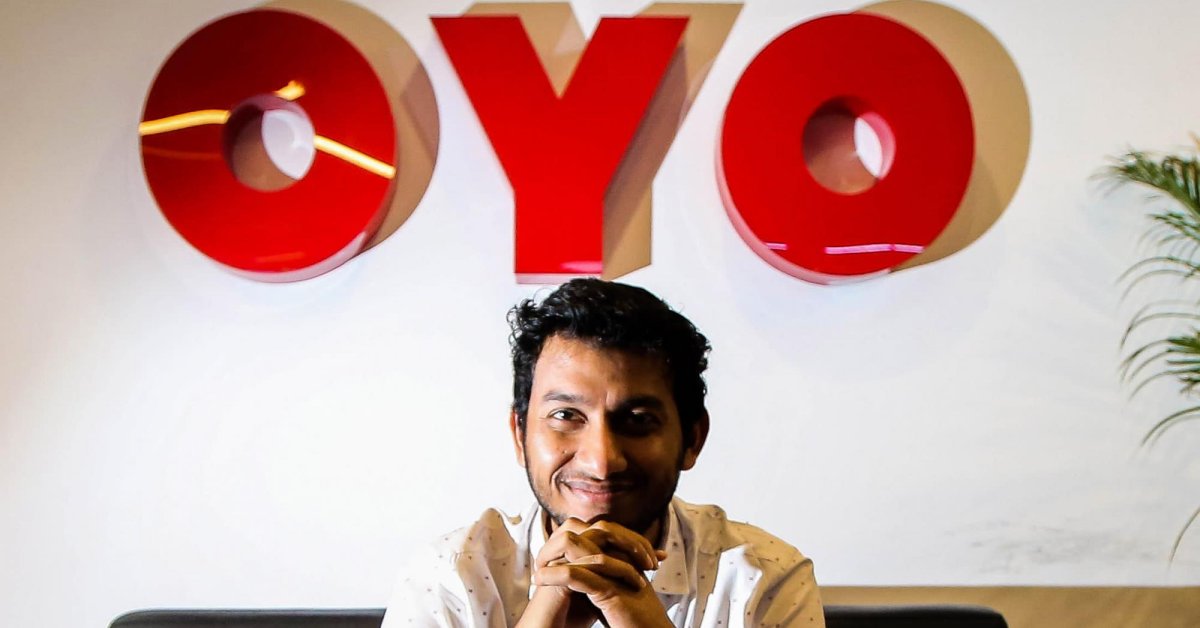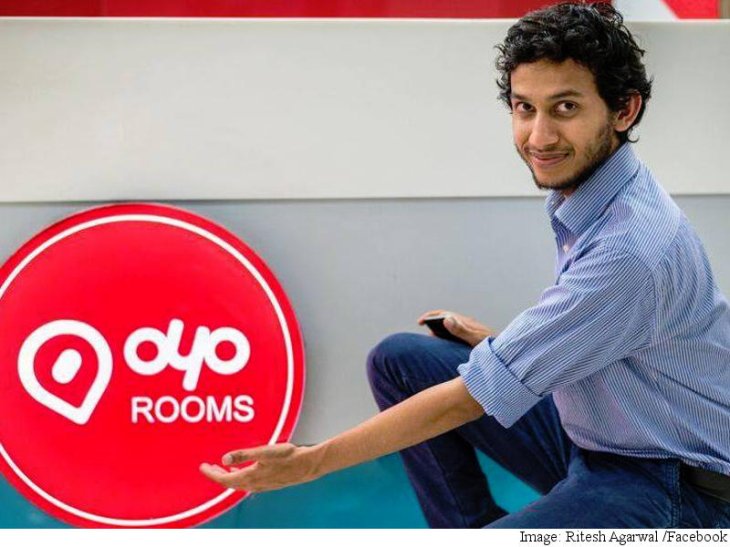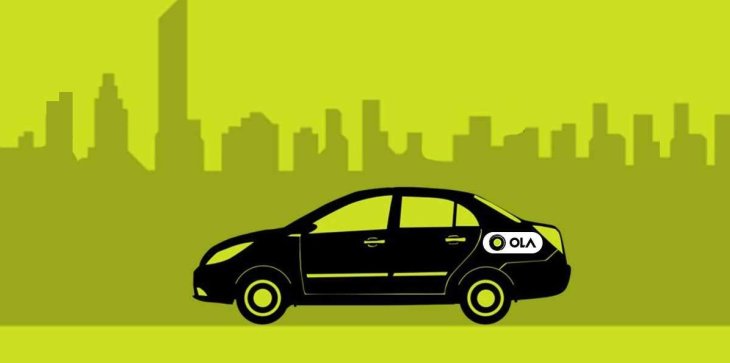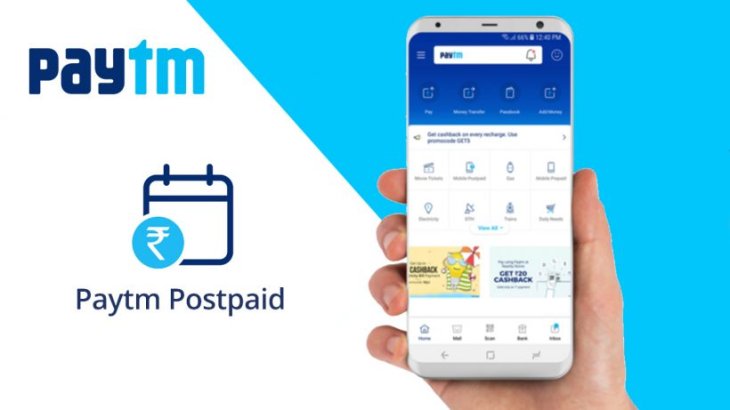Founder Of Oyo Spent $2.2 Billion To Triple His Stake To 30%
Chitanis - Oct 01, 2019

Oyo announced that its founder, Ritesh Agarwal, had spent $2.2 billion to triple his stake from 10% to 30% to have tighter control over the firm.
- Delhi Is The World’s Most Polluted Capital City For Three Years In A Row
- Indian Farmers Install High-Tech, Night-Vision CCTV Cameras To Protect Themselves
- Looking For The Best Electric Bike In India 2021? Take A Look At These
Officers from Oyo Hotels and Homes stated that Ritesh Agarwal, the company's CEO, and founder, will increase his shareholding by making more investments into the hospitality startup. This is a part of the company’s $2-billion round, including primary and secondary shares purchasing in a never-happened-before transaction in the Indian industry of startup and technology.
This transaction, along with the support of financial partners and institutional banks, will triple Agarwal’s shareholding to more than 30 percent from just 10 percent, which consolidates his holding in a firm with branches in Europe, China, and the US. According to a report from TOI in June, with this deal, the firm is estimated to be worth about $10 billion.
The majority of Oyo shares now owned by Agarwal, who was still a teenager when founded the company, including 10 percent from Lightspeed-a venture capital business, and 13 percent from Sequoia India. A report revealed that Lightspeed, which is selling around 9 percent of its stake for around 1 billion, will receive a huge amount of money from this deal. Meanwhile, Sequoia will receive more than 500 million dollars.

In early 2014, Lightspeed invested in Oyo a total amount of money of $28 million. After the deal, the firm will keep holding about four percent. At the same time, Sequoia will keep holding four to five percent as the company had made a $25-million investment in Oyo. Agarwal’s deal is being carried out through RA Hospitality Holdings (Cayman), an SPV (special purpose vehicle), which had applied to CCT, a competition regulator, for a clearance. The deal still needs approval from shareholders and regulators.
As reported by TOI on July 5th, the transaction happened when SoftBank, the biggest shareholder of Oyo, was unable to increase its shares over 49.9 percent, without approval from Lightspeed, Sequoia, and Agarwal, in accordance to a shareholding agreement. After this transaction, 80 percent of Oyo’s shares will be held by Agarwal and SoftBank.
Last month, Sebi, a market regulator, gave consent to companies in India to distribute DVR shares with an aim of tightening founders’ control even if they put their stake on sale to raise external capital. At present, industry stakeholders all hope that Sebi would relax some DVRs-attached riders.
As claimed by Oyo, in June 2019, there has been a YoY increase of 4.4x in its revenue in comparison to the same period of last year. The revenues of Oyo are about 3.1 billion dollars, with about 20 percent are from Europe and the US, and the remaining 40 percent are from China and India. In India, the firm has become Ebitda-profitable.
About two years ago, founders of Ola, a ride-hailing firm, changed the clause of the company to keep them safe from SoftBank's growing influence. In addition, according to TOI’s report, Ankit Bhati and Bhavish Aggarwal, two of the firm’s founders, had introduced new clauses preventing the transaction between SoftBank and other shareholders if there was no permission from them. The clauses came into effect immediately in order to stop a sale like this from Tiger Global.
However, at that time, Ola founders were in a frosty relationship with SoftBank, as SoftBank was supporting the main competitor of Ola, Uber, a ride-hailing firm with headquarter located in America. In comparison to that situation, Agarwal’s relationship with SoftBank can be seen as being good.

Earlier, Rohit Bansal and Kunal Bahl also invested more money to buy more Snapdeal’s shares from early supporters, including Bessemer Venture Partners and Kalaari Capital, with the aim of increasing theirs by about 10 percent. However, the increase of those shares was only worth 100 million dollars, which is much lower than its highest value of 6.5 billion dollars.
Through this deal, in India, besides Paytm, Oyo will be the most valuable startup. Paytm had the valuation of $10 billion after the firm raised $300 million from Berkshire Hathway of Warren Buffett in August last year. According to TOI’s report on March 28, Paytm is also preparing for a new funding round, which would make the company to be valued at about $17 to $18 billion. Recently, Ola, a ride-hailing firm, was valued at $6.2 billion; in the meantime, Byju, an education technology startup, is worth $5.4 billion.

The value of Oyo was $5 million after the firm received around $800 million from SoftBank back in September last year. Around three-fourths of this amount was spent on its branches in China and its expansion in other markets across the world.
Oyo has had the ability to attract investments from some strategics, such as ride-hailing firms, which includes Didi Chuxing in China and Grab in Southeast Asia, each of whom invested $100 million. Earlier this year, Oyo had its largest win when Airbnb, a home-sharing firm with headquarter in San Francisco, which inspired Agarwal at the beginning of his startup, made a $75-million investment in the firm.
Featured Stories

Features - Jan 29, 2026
Permanently Deleting Your Instagram Account: A Complete Step-by-Step Tutorial

Features - Jul 01, 2025
What Are The Fastest Passenger Vehicles Ever Created?

Features - Jun 25, 2025
Japan Hydrogen Breakthrough: Scientists Crack the Clean Energy Code with...

ICT News - Jun 25, 2025
AI Intimidation Tactics: CEOs Turn Flawed Technology Into Employee Fear Machine

Review - Jun 25, 2025
Windows 11 Problems: Is Microsoft's "Best" OS Actually Getting Worse?

Features - Jun 22, 2025
Telegram Founder Pavel Durov Plans to Split $14 Billion Fortune Among 106 Children

ICT News - Jun 22, 2025
Neuralink Telepathy Chip Enables Quadriplegic Rob Greiner to Control Games with...

Features - Jun 21, 2025
This Over $100 Bottle Has Nothing But Fresh Air Inside

Features - Jun 18, 2025
Best Mobile VPN Apps for Gaming 2025: Complete Guide

Features - Jun 18, 2025
A Math Formula Tells Us How Long Everything Will Live
Read more

ICT News- Feb 28, 2026
Anthropic Blacklisted by US Department of War: Trump Orders Federal Ban Over AI Safeguards Dispute
The story is developing. Federal agencies have been instructed to begin transition planning immediately.

ICT News- Mar 02, 2026
IDC Report Predicts Surging Smartphone Prices Due to Global RAM Shortage
This development underscores the broader ripple effects of the AI boom on everyday technology, highlighting the interconnected nature of global semiconductor supply chains.

ICT News- Mar 01, 2026
Samsung Links Galaxy S26 Price Hikes to AI Memory Supply Issues
This development highlights the broader challenges faced by the tech industry as it integrates artificial intelligence into everyday consumer electronics.
Comments
Sort by Newest | Popular